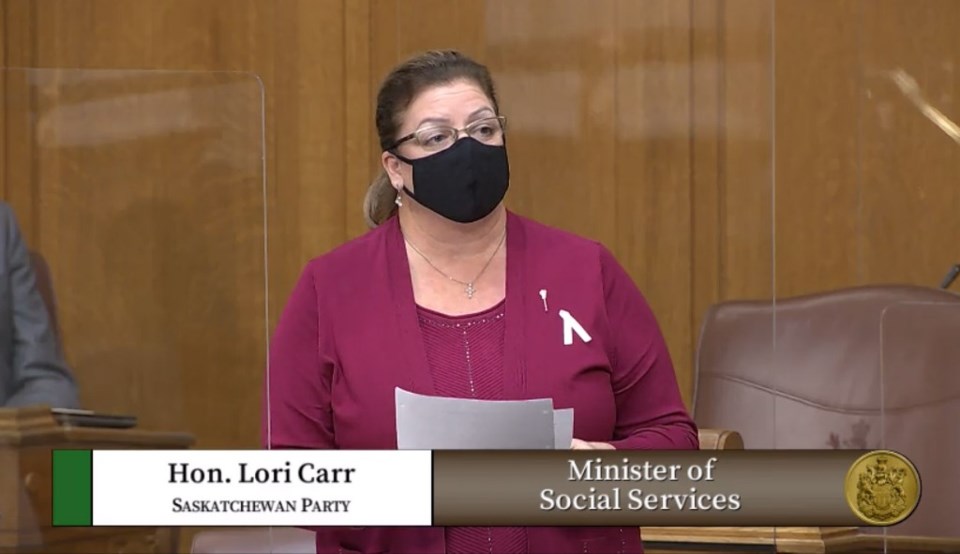In an effort to improved affordable housing, the Province of Saskatchewan and Government of Canada announced on Dec. 21 an expansion of the Saskatchewan Housing Benefit (SHB).
The program was launched in April by the Governments of Canada and Saskatchewan to help people with low incomes have more affordable rent. It has now been expanded to support more low-income renters in the province. The SHB is a monthly benefit available to people with low incomes who pay 50 per cent or more of their income on housing. The program, which was previously available only to people with low income who live in community housing, has now been expanded to support Saskatchewan renters in the private market as well. Through SHB, renters will receive a flat, monthly benefit based on their family and living situation, according to the joint news release.
All eligible renters receive a flat, monthly benefit based on their household. For example, a single person or couple in a one-bedroom apartment will receive $150 per month; a family in a two-bedroom apartment will receive $200 per month; and a family living in an apartment with three bedrooms or more will receive $250 per month.
The SHB was co-developed and is jointly funded by both the federal and provincial governments under the National Housing Strategy. A total of $6.8 million has been committed for the benefit this year. The SHB is funded by the federal and provincial governments through the Canada Housing Benefit initiative of the National Housing Strategy. The federal contribution to the SHB for the 2020-21 fiscal year is $3.41 million, which the province has cost-matched.
The SHB was included as part of the 2020-21 provincial budget. The program started on April 1, 2020.
The SHB was designed to be a portable benefit. This means that recipients remain eligible for the benefit if they move between community housing or private rentals, as long as housing costs are 50 per cent or more of their income.
“Under the National Housing Strategy, our government is taking steps to ensure that every Canadian has a safe and affordable place to call home,” said Ahmed Hussen, federal Minister of Families, Children and Social Developmen, in a release. “Many renters need long-term, predictable assistance to pay their rent and we are providing that through the Saskatchewan Housing Benefit. With this announcement, we are taking significant action to continue to build strong communities where Saskatchewan families can prosper and thrive.”
“I’m pleased to announce the Saskatchewan Housing Benefit is now available to renters in the private market to help cover part of their rent, allowing individuals to live more comfortably and securely,” Social Services Minister Lori Carr said. “I encourage Saskatchewan people who are eligible to apply for the program so they can have an easier time making ends meet.”
Speaking by phone, Carr said that only 70 people across Saskatchewan had applied for the program as it was previously set up, despite there being $6.8 million available in funds. “So not a very big uptake,” she said.
“The money is here to help people. So that’s why we’re expanding it, is to try and reach a few more people than have applied.”
Asked if the COVID-19 pandemic was a factor, she said, “I suppose it could (be), because people may be able to work, but they may be making less money. They may have settled for a job that isn't what they're used to, so it could play into it. So, this would be a help to them. For example, a single person, earning $28,000 or less, if they qualify for the program, they could get $150, a month to go towards their one-bedroom apartment. That's $1,800 a year more for them, so it would help.”
She added, “This is truly for that working Joe that's having a tough time making ends meet. And this will help bridge them to success.”



